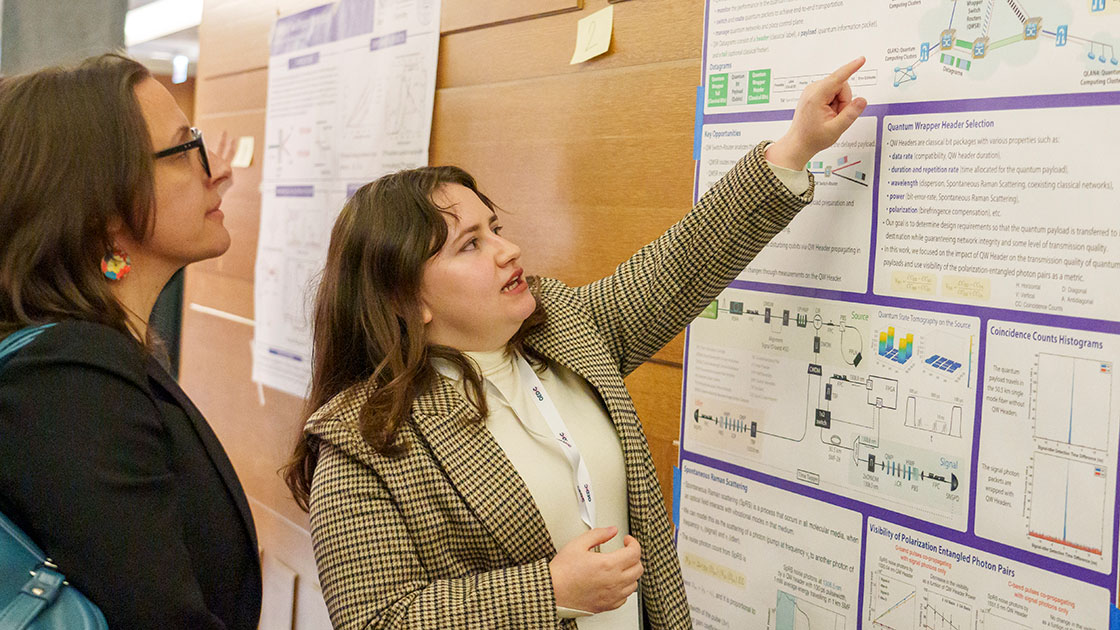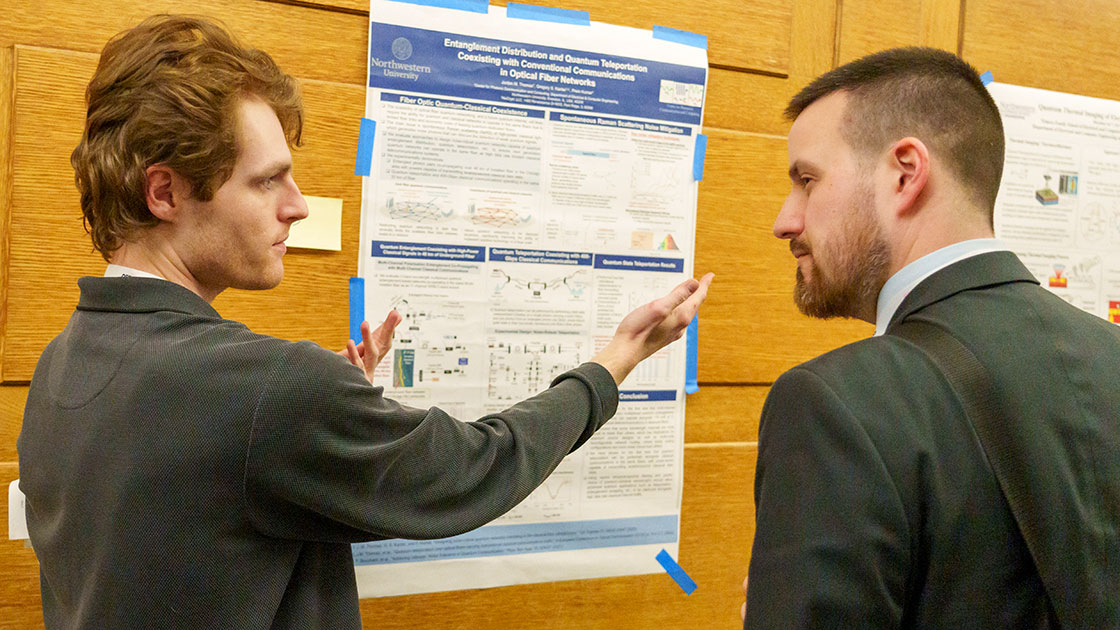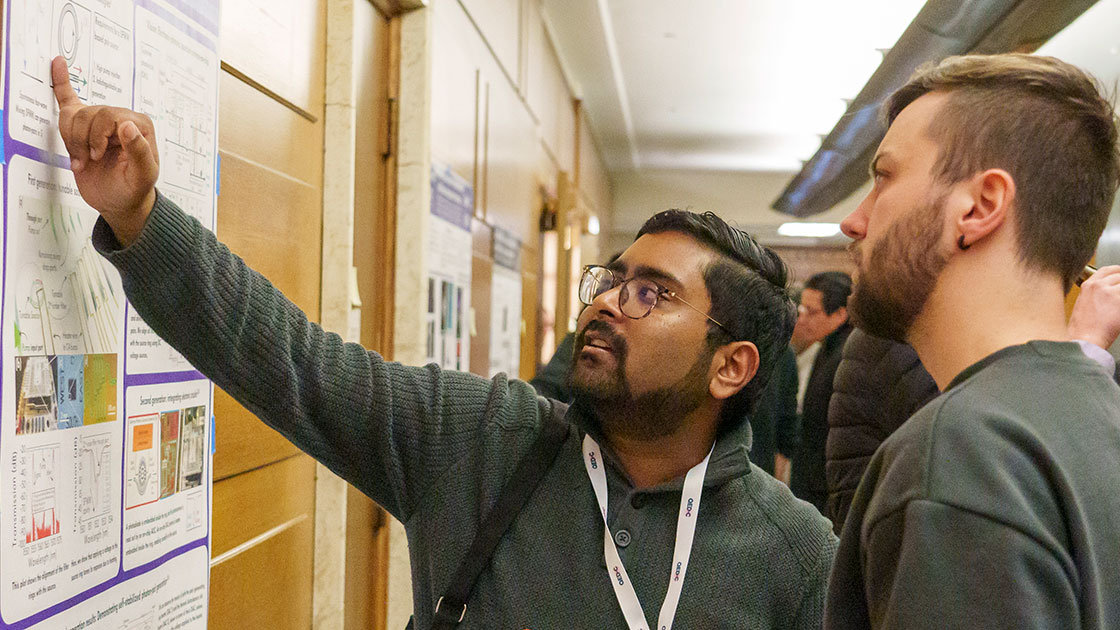Advancing Quantum Leadership and Community
Northwestern hosted a QED-C plenary meeting for academic, corporate, and government stakeholders
Quantum 1.0 technologies — including lasers, MRI scanners, transistors, and semiconductor devices — paved the way for ubiquitous devices and services such as smart phones, laptops, and GPS navigation. Harnessing the quantum mechanics of sub-atomic particles — the phenomena of superposition, measurement, and entanglement — quantum 2.0 technology has the potential to revolutionize artificial intelligence, communications, information technology, manufacturing, and transportation and logistics.
To advance quantum research and technology development, Northwestern University is a founding member of the Quantum Economic Development Consortium (QED-C), an alliance of academic, corporate, and government stakeholders established under the 2018 National Quantum Initiative Act with support from the National Institute of Standards and Technology to accelerate the development of quantum information science and technology applications.
QED-C aims to realize the transformative potential of quantum 2.0 technologies — from quantum computing and cryptography to quantum sensing, timing, and imaging — by supporting a robust quantum ecosystem and quantum industry supply chain and identifying strategic gaps in enabling technologies, standards and regulation, and quantum workforce development.
On March 20-21, Northwestern hosted a QED-C plenary meeting for nearly 150 members — including leaders from Northwestern Engineering and the University —to learn, network, and identify collaboration opportunities.
Northwestern President Michael H. Schill and QED-C executive director Celia Merzbacher welcomed the guests.
“One doesn't need to be an expert about quantum computing to understand that it is a critical area for Northwestern and indeed for our nation and world,” said Schill, professor of law in Northwestern’s Pritzker School of Law and professor of finance and real estate in the Kellogg School of Management. “The research emerging from this field is poised to revolutionize our lives in the coming decades, and the work that all of you are involved in certainly brings needed solutions to a whole range of societal challenges that quantum computing will have the answers to.
“Quantum is a rising priority for Northwestern and for our faculty members. In the University priorities I unveiled last summer, I highlighted the importance of research and innovation in data science, artificial intelligence, sustainability, and decarbonization. All of those things are implicated in quantum computing, so I'm really excited that we're able to host this conference and that we're a founding member of this consortium.”
One doesn't need to be an expert about quantum computing to understand that it is a critical area for Northwestern and indeed for our nation and world. The research emerging from this field is poised to revolutionize our lives in the coming decades, and the work that all of you are involved in certainly brings needed solutions to a whole range of societal challenges that quantum computing will have the answers to.
Northwestern University President Michael H. Schill
Quantum computing for transportation and logistics
Quantum computing offers significant promise for optimization, real-time decision making, monitoring, and predictive modeling in the highly complex, data-driven transportation, logistics, and supply chain sectors.
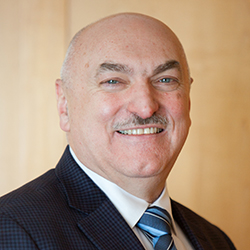 “Transportation is already providing a rich and challenging domain for AI and machine learning applications, driving fundamental advances that directly benefit individuals and society,” said Hani Mahmassani, director of the Northwestern University Transportation Center (NUTC), William A. Patterson Distinguished Chair in Transportation, and professor of civil and environmental engineering. “We view quantum computing as a major force for delivering AI applications at scale that can impact cities, regions, countries, and ultimately, global travel and trading patterns.”
“Transportation is already providing a rich and challenging domain for AI and machine learning applications, driving fundamental advances that directly benefit individuals and society,” said Hani Mahmassani, director of the Northwestern University Transportation Center (NUTC), William A. Patterson Distinguished Chair in Transportation, and professor of civil and environmental engineering. “We view quantum computing as a major force for delivering AI applications at scale that can impact cities, regions, countries, and ultimately, global travel and trading patterns.”
On March 19, the QED-C Use Cases Technical Advisory Committee published a study, titled “Quantum Computing for Transportation and Logistics,” based on a workshop NUTC facilitated last October to assess the feasibility and impact of quantum computing use cases for transportation and logistics applications.
The committee — which also included NUTC senior associate director Bret Johnson; Kevin Glynn, adjunct lecturer in Northwestern Engineering’s Master of Science in Information Technology Program; and postdoctoral scholar Divyakant Tahlyan (MS ’21, PhD ’23) — proposed 83 potential uses, including applications with high-impact potential in the near-term such as demand forecasting and optimization of labor, routing, and warehousing.
At the QED-C plenary meeting, Glynn moderated a panel featuring Tahlyan, chief technology officer at PCS Software Yusuf Ozturk (CS PhD) and Catherine Potts of D-Wave Quantum to discuss the findings and recommendations of the study and the computational challenges within the transportation and logistics domains.
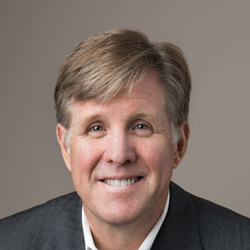 “The transportation industry is so fragmented in North America that we can’t solve the variables with classical computers,” Glynn said. “To put it in context, there are about a million trucks on the road and those are represented by 800,000 private companies, so there is no such thing as ‘scale’ within the commercial side of the industry.”
“The transportation industry is so fragmented in North America that we can’t solve the variables with classical computers,” Glynn said. “To put it in context, there are about a million trucks on the road and those are represented by 800,000 private companies, so there is no such thing as ‘scale’ within the commercial side of the industry.”
The panelists agreed that the existing level of classical computation power is insufficient to solve the algorithmic problems across the logistics and supply chain sectors and that the development and adoption of quantum computing technologies is the next step toward increasing operational efficiency, supply chain security and resilience, and efficiencies to address sustainability.
Sustainable quantum technologies
Mahmassani explained that quantum technologies can play a crucial role in enhancing sustainability efforts within transportation and logistics by optimizing energy consumption, reducing carbon emissions through more efficient routing, and improving overall resource utilization.
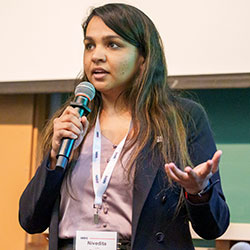 Quantum technology applications can help solve a range of vexing problems in sustainability — for instance, quantum-enabled precision agriculture can improve farming efficiency, enhance fertilizer production, and reduce carbon generation through crop management and yield optimization; and quantum batteries can vastly increase the speed and efficiency of energy storage.
Quantum technology applications can help solve a range of vexing problems in sustainability — for instance, quantum-enabled precision agriculture can improve farming efficiency, enhance fertilizer production, and reduce carbon generation through crop management and yield optimization; and quantum batteries can vastly increase the speed and efficiency of energy storage.
“What mRNA research did for COVID is similarly what quantum computing could do for climate change,” said Nivedita Arora, the Allen K. and Johnnie Cordell Breed Junior Professor of Design and assistant professor of electrical and computer engineering at Northwestern Engineering. “The next decade is going to be very critical, and we need to accelerate radical decarbonization efforts in electricity, transport, and manufacturing.”
Prem Kumar, professor of electrical and computer engineering, opened a dialogue in a QED-C plenary breakout session on both the applications of quantum to sustainability and the sustainability of quantum technology.
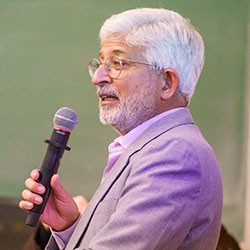 “The sustainability of quantum technologies must be a forethought,” Kumar said. “From the outset, it is crucial to strive to establish environmental sustainability benchmarks and comprehensively assess quantum technologies through a sustainability lens for their entire life cycle — production, use, reuse, and disposal — so that we don't make the same mistakes we see today.”
“The sustainability of quantum technologies must be a forethought,” Kumar said. “From the outset, it is crucial to strive to establish environmental sustainability benchmarks and comprehensively assess quantum technologies through a sustainability lens for their entire life cycle — production, use, reuse, and disposal — so that we don't make the same mistakes we see today.”
Kumar and panelist Michael R. Wasielewski are executive committee members of Northwestern’s Initiative for Quantum Information Research and Engineering (INQUIRE), a transdisciplinary hub of education and research excellence in quantum sciences across areas including material informatics and data science, material synthesis, molecular quantum transduction, nanotechnology, photonics, physics, and superconducting technologies.
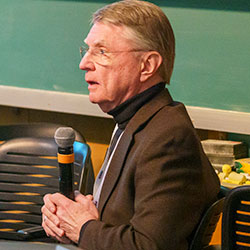 Wasielewski, Clare Hamilton Hall Professor of Chemistry at Northwestern’s Weinberg College of Arts and Sciences and co-executive director of the Paula M. Trienens Institute for Sustainability and Energy, encouraged attendees to consider development of quantum technologies within a framework of economics, public policy, and regulatory issues. He also proposed that the advancement of quantum technologies creates an opportunity to eliminate root problems of existing technologies, such as millikelvin temperature requirements.
Wasielewski, Clare Hamilton Hall Professor of Chemistry at Northwestern’s Weinberg College of Arts and Sciences and co-executive director of the Paula M. Trienens Institute for Sustainability and Energy, encouraged attendees to consider development of quantum technologies within a framework of economics, public policy, and regulatory issues. He also proposed that the advancement of quantum technologies creates an opportunity to eliminate root problems of existing technologies, such as millikelvin temperature requirements.
“If we think that we're at an incipient stage of developing quantum technology, now is the time to really think of alternatives, to be creative and see what’s possible,” said Wasielewski, who is also the director of INQUIRE and the Center for Molecular Quantum Transduction.
Student focus on next-generation quantum technologies
Students conducting research in quantum fields from Northwestern and nearby universities were invited to participate in a special track at the plenary meeting which featured speed mentoring, a science communication workshop, and a poster session.
Gamze Gül, a fifth-year PhD student in applied physics advised by Kumar, is interested in designing quantum networking protocols to manage and control quantum networks using classical bits. She presented a poster titled “Quantum Wrapper Networking,” which demonstrated a novel approach to operate quantum networks that is both compatible with current fiber optic infrastructure and allows for quick adjustments to address network problems — such as loss or high traffic. By creating a package of quantum bits — or qubits — wrapped with classical bits, the qubits can be transported to their destinations without measurement or disturbance to the payload.
“Some technologies that we use in our daily lives, such as lasers, GPS, and transistors, would be impossible without a deeper understanding of quantum mechanics,” Gül said. “Today, we are entering a new era of quantum technologies that could help us understand the world we live in through quantum computing or sensing. It will be crucial to connect the distributed quantum systems.”
